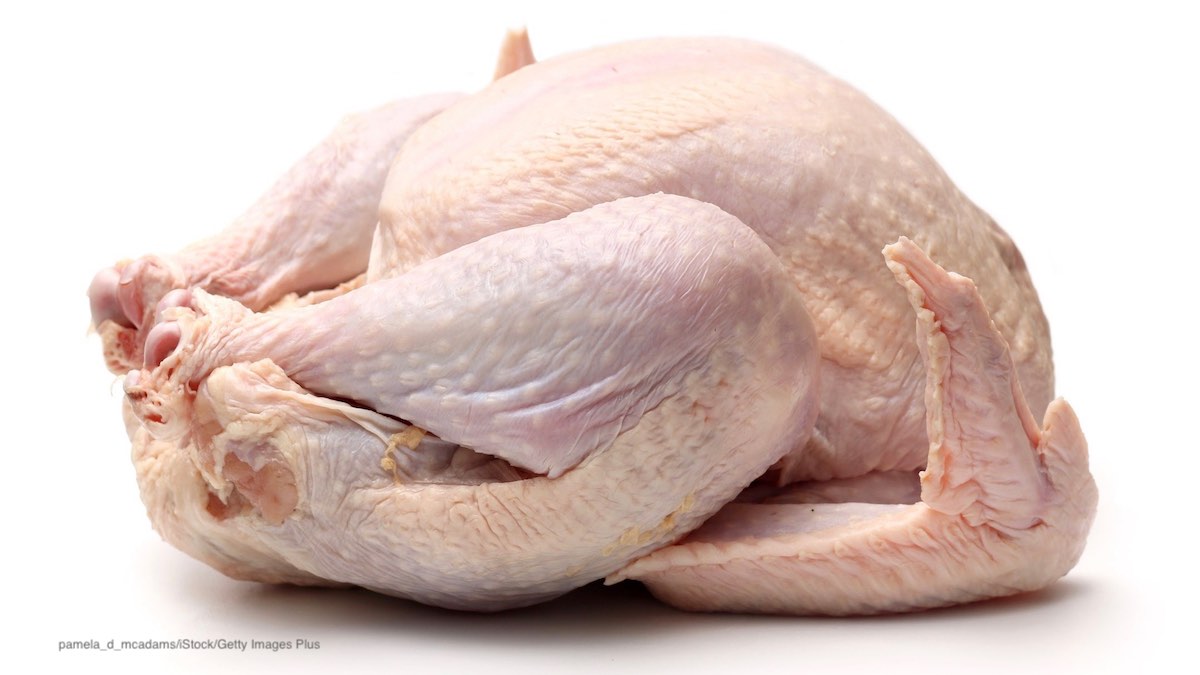A Salmonella I 4,[5],12:i:- outbreak linked to kosher chicken, more specifically Empire Kosher brand chicken, has sickened at least 17 people in four states. Eight of those patients have been hospitalized, which is a very high percentage for this type of pathogen illness. And one person in New York has died.

So how do you protect yourself against pathogens in chicken? The Centers for Disease Control and Prevention (CDC) has some answers.
Raw chicken is often contaminated with Campylobacter, Salmonella, and Clostridium perfringens bacteria. If the chicken you eat is not cooked to a safe temperature, or the raw chicken or its juices contaminate surfaces in your kitchen, you can get very sick.
Everyone needs to “take special care when handling and preparing chicken,” according to the CDC. And that “special care” starts in the grocery store.
When you buy chicken at the store, pick it up using a disposable bag and then turn that bag inside out to enclose the chicken. That prevents any cross-contamination between the raw chicken and other items in your cart. And refrigerate that chicken within two hours of putting it in your cart. When you get home, make sure the chicken is refrigerated immediately.
Do not wash raw chicken. This action does not remove bacteria from the chicken; it simply spreads it around your kitchen. The only method to kill pathogenic bacteria is to heat it.
Use a separate cutting board for chicken. Never put cooked food on a plate or other surface that previously held raw chicken. Wash cutting boards, dishes, utensils, the food thermometer probe, and countertops with hot soapy water after preparing chicken.
Most people don’t think of washing the food thermometer probe between tests. But that probe can pick up bacteria in the chicken if the chicken is less than 160°F. Use soap and water. And make sure you have a reliable food thermometer and use it every time you cook. Finally, refrigerate or freeze leftover chicken within two hours of its removal from the oven.
It’s also a good idea to learn the signs of food poisoning. Call a doctor if someone in your family has diarrhea for three days that isn’t improving, bloody stools, prolonged vomiting, a fever, and signs of dehydration.




